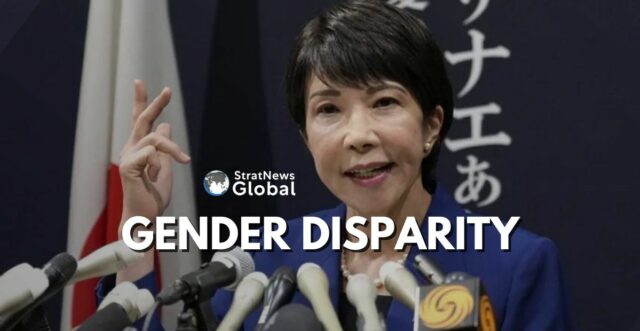Japan could have seen its first female Prime Minister had Sanae Takaichi won the party head run-off. Her candidacy represented a significant step toward a historic milestone in the nation’s political landscape.
Despite being one of the world’s largest economies, Japan ranks low in female representation in government. The Act on Promotion of Gender Equality in the Political Field aims to increase the proportion of female candidates in national elections to 35%, but progress has been minimal.
A recent Mainichi Shimbun survey shows that just 18.1% of potential candidates from Japan’s six major political parties for the upcoming election are women, approximately half of the 35% target for 2025. This underscores the ongoing challenges in enhancing women’s political participation even six years after the Act, which was implemented in May 23, 2018.
According to the Global Gender Gap Report 2024 released by the World Economic Forum, Japan continues to struggle with gender equality, ranking 120th out of 156 countries in the overall gender gap index. This positioning underscores ongoing issues in various sectors, particularly in economic participation and political empowerment.
The reasons for this disparity are multifaceted. Cultural norms and traditional gender roles often contribute to this, with societal expectations influencing women’s participation in politics. Additionally, there are challenges such as a lack of support networks, limited access to funding for female candidates, and an often male-dominated political culture.
Japan’s former prime minister Shizo Abe’s push for more participation of women into leadership positions and creating a ‘Japan in which women can shine’ did not yield anticipated results. Although in recent years women have been appointed to prominent positions, such as Yuriko Koike, who became the first female governor of Tokyo, and Seiko Noda, who has held various ministerial roles, Japan has still not been able to give more women representation despite its policies like ‘womenomics’. Women representation in the National Diet is still only about 10%.
Women empowering movements like #Metoo and KuToo have given a little push to calls for greater representation and support for women in leadership roles, and the discussions of gender discrimination in Japanese society.
In the history of Japan, it has witnessed eight empresses, all ascended the throne as the result of demand of the situation and not by the law. The question of whether modern Japan will let a female rule still remains. The present Emperor Naruhito of Japan has a daughter, Princess Aiko, who is not in line to the throne. However, Japanese imperial succession law is currently under debate, and there are discussions about potentially changing the law to allow women to ascend to the throne.
Addressing gender disparity in Japan’s political system requires a multifaceted approach. While legislative measures are essential, they must be accompanied by cultural shifts challenging traditional gender roles. Political parties must actively work to support female candidates, providing resources and mentorship to help them navigate the complexities of political campaigns.
Moreover, the ongoing advocacy for gender equality in Japan must continue to build momentum, pushing for systemic changes that pave the way for a more inclusive political landscape.





